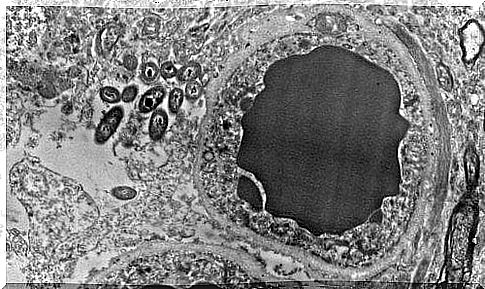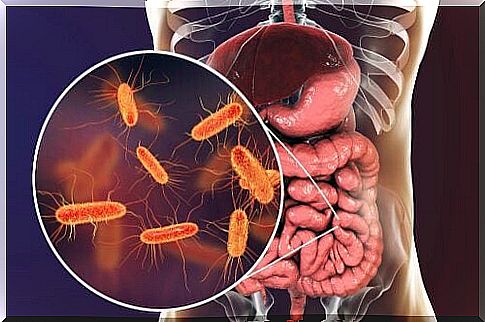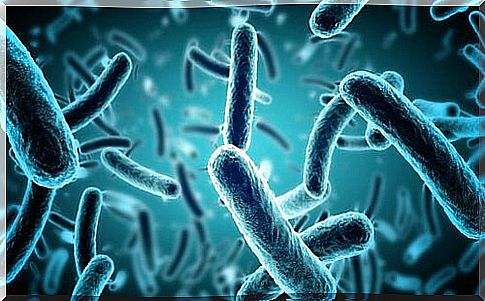Brain Microbiome: Bacteria In The Brain

The hypotheses on the relationship between the intestinal microbiome and the brain were already interesting, but it seems that the link is even closer than previously thought. At the latest Society for Neuroscience congress, the University of Alabama presented research showing that some gut bacteria live in different areas of the brain, what appears to be a brain microbiome.
It is a fascinating and at the same time alarming discovery. Bacterial strains have been isolated, but it is still not possible to explain how they got to the brain, or whether they are beneficial or negative. It is suspected that this sort of brain microbiome may even affect mood and, perhaps, our personality.
What is the gut microbiome?
It is a set of microorganisms present in our intestine; we are talking about millions of bacteria of different strains, made up of millions of genes. Of these, only one third is common to all human beings, the rest is different in each person. We can therefore say that the intestinal microbiome is an important part of our identity.
Among its most important functions are the regulation of the immune system, the absorption of nutrients and the control of external pathogens. Any alteration of the intestinal microbiome can lead to autoimmune diseases, allergies and infections. In recent times, in fact, they have also been linked to Alzheimer’s disease and Parkinson’s.
On the other hand, intestinal flora imbalances generate the development of endotoxins, high levels of oxidation and abdominal fat storage. Chronic inflammation also produces the onset of cardiovascular disease and diabetes.
Although they are mostly scary, the truth is that we cannot live without these bacteria. Without being aware of it, we host billions of living beings in our bodies.

The brain microbiome
The presence of bacteria in the brain came as a surprise to the scientific community. One of the first questions to be solved is to understand how they can get to the brain since it is protected by the blood brain barrier.
This barrier is the system that protects the brain by preventing entry to external agents; at the same time, it allows the selective passage of amino acids and molecules. The bacteria found in the brain are, however, mostly intestinal phylogeny.
It is the glial cells, the astrocytes with a support function for neurons, which prevent neurotoxins and other agents from entering the brain. When these harmful substances manage to cross the barrier of protection, they often produce inflammations with serious and even fatal consequences.
The curious aspect of the whole matter is that astrocytes appear to be the preferred home of gut bacteria that live in the brain.
There are several hypotheses on how the bacteria get there. For example, they are thought to come through the nerves of the intestine, the blood brain barrier, or the nose. But they are tense yet to be confirmed, and the brain microbiome still remains a mystery to be studied.

Research
Dr. Rosalinda Roberts and her team from the University of Alabama ‘s Psychiatry and Behavioral Neurobiology are responsible for this finding. To achieve this, they studied the postmortem brains of 34 people: half healthy and the other half suffering from schizophrenia. A parallel study was also conducted on guinea pigs; this served to exclude that the bacteria appear only after death or were due to contamination of the finds.
Both in the first study and in the parallel one, the presence of bacteria in the brain, both human and guinea pigs, was observed in non-infectious and non-traumatic situations. The brain microbiome is found mainly in the substantia nigra, hippocampus and prefrontal cortex and in scarce quantities in the striatum. None of the brains examined showed signs of inflammation.
These findings have left the door open for speculation and new research on the brain microbiome. For the time being, the hypothesis is considered that these microbes are related to behavior, mood and some neurological diseases. The results on healthy subjects lead us to think, however, that coexistence can be beneficial, as it happens in the intestine. No possibility is excluded.
Main image courtesy of Rosalia Roberts, Courtney Walker, and Charlene Farmer.









